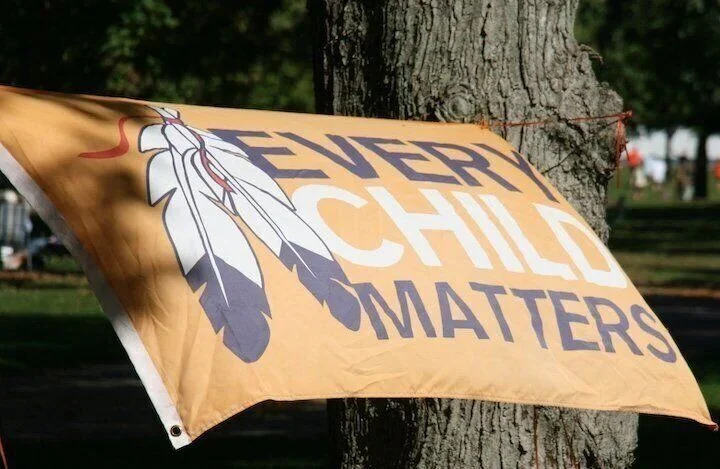Each year on September 30, Canadians pause to reflect on the country’s painful history with residential schools through the National Day for Truth and Reconciliation, also known as Orange Shirt Day. The day honours survivors, remembers the children who never returned home, and acknowledges the ongoing impact on families and communities.
Orange Shirt Day grew out of events in British Columbia in 2013, when Phyllis Webstad shared her story as a former student at St. Joseph Mission Residential School. In 1973, she had proudly chosen a new orange shirt for her first day, only to have it taken away by staff. She never wore it again, and her experience became a symbol of how the schools stripped children of identity and culture. Today, Canadians wear orange shirts in solidarity with survivors and to affirm that “Every Child Matters.”
The federal government formally established the National Day for Truth and Reconciliation in 2021, following the recommendations of the Truth and Reconciliation Commission (TRC). The TRC, created as part of the 2007 Indian Residential Schools Settlement Agreement, listened to thousands of survivors’ stories and documented over a century of policies that aimed to erase Indigenous language, culture, and traditions. In 2015, the Commission issued 94 Calls to Action spanning education, health care, justice, media, and reconciliation. Many of those recommendations remain unfulfilled, though awareness and dialogue continue to grow.
Communities across Ontario and Canada mark the day with sunrise ceremonies, sacred fires, and storytelling, offering moments of healing and remembrance. Elders guide these gatherings, sharing words of strength and encouraging both survivors and settlers to walk the path of reconciliation together.
Education is also central to the day. Libraries, schools, and cultural institutions provide reading lists and resources to help Canadians learn more about Indigenous histories and contributions. Trail markers along the Trans Canada Trail highlight Indigenous cultures, while films, podcasts, and documentaries deepen understanding of the lasting effects of residential schools.
Though September 30 is only one day on the calendar, it represents an ongoing commitment: to remember the children, honour the survivors, and work toward a more truthful and reconciled future.

